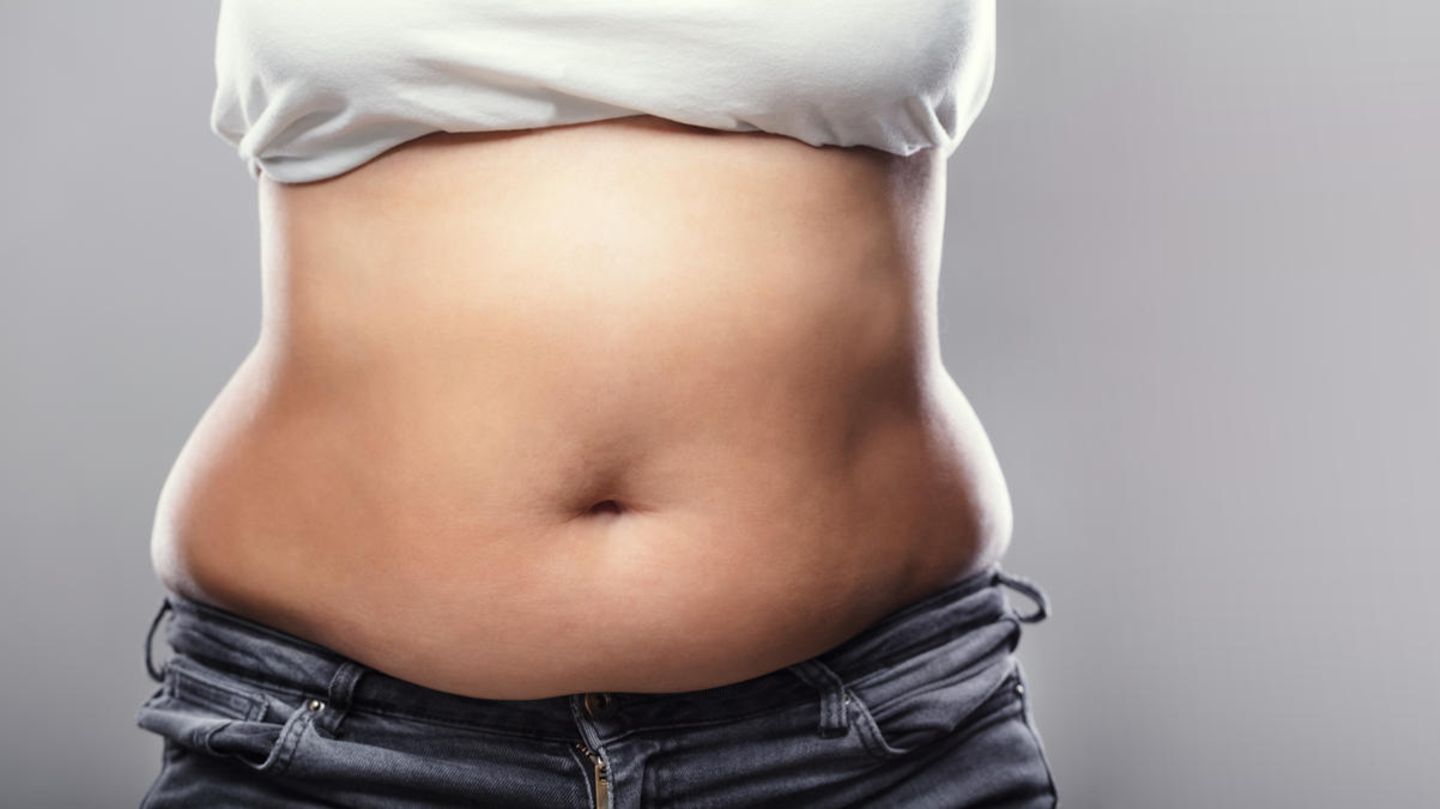The Germans are getting bigger and bigger. Many have put on a few pounds in the past few months, especially on their stomach. For a long time it was believed that if you wanted to lose weight, you should cut down on fat in your diet. A mistake.
The Germans have gotten fatter in the last few months. You can see it at first sight. Everyone gained an average of five kilos during the corona pandemic. That’s quite a lot. Mainly because most of it ended up on the stomach.
There are places on the human body where it doesn’t really matter how much fat is deposited there. This includes buttocks and thighs, for example. The fat there is usually the so-called subcutaneous fat. It keeps us warm – and in women it serves as a storage medium for pregnancies, for example. It may be visually annoying to many – but this fat is not unhealthy. A butt like Kim Kardashian doesn’t cause a heart attack.
The belly fat is completely different. It accumulates in the abdominal cavity and encloses important organs. Above all, it is very metabolically active and secretes countless messenger substances. These are suspected of triggering small inflammations throughout the body, which in turn are considered to be the trigger for cardiovascular diseases, type 2 diabetes or arteriosclerosis. So it is no surprise that the so-called “visceral fat” is also to blame for the fact that one in four people over 40 years of age suffers from fatty liver. Ascending trend.
The cause is quickly found: an unhealthy diet in particular is an important driver behind those big bellies. We humans are omnivores. We can utilize all kinds of nutrients of animal and vegetable origin. Some get us well, some make us sick. For many years, fats have been suspected of making us particularly fat. They trigger what is known as the metabolic syndrome, also known as the deadly quartet, it is believed. This is a bad mix of belly fat, high blood pressure, fat metabolism and high blood sugar levels, which is usually fatal.
For a long time it was said that fat makes you fat
That is why the expert advice has been in effect for many decades: Fats should be avoided whenever possible. But has it made us thinner and healthier? No, on the contrary. The average body weight in Germany has risen steadily, the bellies have got bigger and bigger. At some point, doubts crept in about the rigid rules. Scientists and doctors suddenly differentiated between saturated and unsaturated fatty acids – one should be better than the other. Instead of fat, starchy foods should be eaten. The data situation behind it? Very thin.
Fat makes you fat? The answer today is clear: no! The number of obese people has increased so dramatically because fat has been replaced with highly processed carbohydrates. And the body digests them much, much faster. White bread, for example, contains easily digestible carbohydrates which, after a series of metabolic reactions, first raise the blood sugar level – and then suddenly drop it again. The cravings are so programmed.
Fats take longer to digest
Fat is completely different: the fat molecules lie close together and first have to be laboriously broken down in the stomach and intestines. That takes time and so, in the truest sense of the word, they lie longer in the stomach and also make you feel full more sustainably. In addition, hormones are formed during digestion that make you feel full. Fat is also a vital substance for the human body. This is the only way it can produce certain hormones, and it cannot break down some vitamins and minerals. In addition, fats are important for the immune system.
The traditional Mediterranean cuisine contains a lot of mainly unsaturated fatty acids. A large study a few years ago found that participants who ate either an extra serving of olive oil or nuts a day had a 30 percent lower risk of stroke compared to those on a low-fat diet. Olive oil with its oleic acids is now considered a real health maker. There are quite a few experts who therefore recommend consuming up to two tablespoons a day. Overall, it has now been shown very well that the Mediterranean diet has an extremely positive effect on weight. Much better than diets, by the way – and without any yo-yo effect. According to the latest study, it is also considered to be the best diet to get rid of the disease-causing belly fat.
However, unsaturated fatty acids still have the reputation of being a disease-causing devil’s stuff. Right? Not necessarily, there are now considerable doubts here as well. A large study by the University of Copenhagen could not prove a connection between unsaturated fatty acids and cardiovascular diseases. However, further investigations are still necessary.




